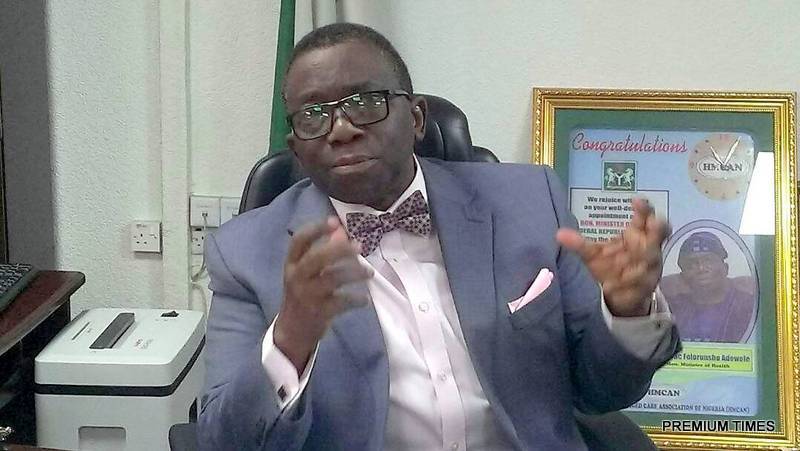Again, minister outlines challenges facing routine immunisation in Nigeria
::introtext::
 The Minister of Health, Isaac Adewole, has identified data falsification, low accountability, poor coordination, and weak service delivery as part of the challenges affecting effective routine immunization (RI) in Nigeria.
The Minister of Health, Isaac Adewole, has identified data falsification, low accountability, poor coordination, and weak service delivery as part of the challenges affecting effective routine immunization (RI) in Nigeria.
The minister, speaking at the 68th meeting of the World Health Organisation Regional Committee for Africa in Dakar, Senegal, assured the meeting of Nigeria’s commitment to immunization as a way of saving lives and improving health outcomes.
In a press statement signed by the director, media and public relations, Boade Akinola on Tuesday, the minister joined other members of the Global Alliance for Vaccine and Immunisation (GAVI) to share the challenges and successes achieved in routine immunization programmes on the continent.
This is with the aim to reviews strategies for improvement of RI in the continent, the release noted.
Mr Adewole, a professor of obstetrics, said the recently conducted Multiple Indicator Cluster Survey (MICS), in Nigeria, gave a clear picture of the immunization status as against the administrative data available in the country.
He said this has made the government declare a Public Health Emergency on immunization to enable the country to close all identified gaps.
According to Mr Adewole, the government came up with several initiatives to address some of the challenges; such as the establishment of National Emergency Routine Immunization Centre (NERIC), which primarily aims to revamp the country’s RI programme.
The minister, while identifying the major challenges as poor coordination, accountability, weak service delivery, and inaccurate data among others said in addressing the issues, the country has now developed zero tolerance for data falsification.
“NERIC has developed strong coordination and accountability structure with rewards and sanction for actors at the federal, state and local governments levels.
They also conduct daily progress monitoring meeting so as to identify gaps and deal with them appropriately,” he added.
Mr Adewole also noted that GAVI’s decision to extend the nation’s transition period to 10 years as against the earlier five years deadline has helped the country in mapping out funding plans to ensure sustainability after the withdrawal of GAVI’s support for immunization in Nigeria.
According to him, the country has a target of 80 percent immunization coverage. He also assured that the government would keep faith in GAVI and all other development partners. Other African countries also shared ideas and challenges similar to Nigeria.
The meeting agreed on the need to adopt measures of doing things differently to achieve better outcomes, increase the political commitment of state actors especially in the area of strong leadership and transparency.
They also agreed to ensure community and group participation which targets women and youth, have a strong data integrity regime and commitment to right recruitments.
Source: Premiumtimes
::/introtext::::fulltext::::/fulltext::
Latest from
- Disease ‘worse than Ebola’ kills 5,000 in DR Congo – WHO
- Stronger donor, govt partnership will help Nigeria achieve UHC by 2030 – Minister
- Gestational Diabetes, threat to maternal, child health
- Number of persons with mental illness increasing – Doctors
- HIV: Nigeria needs to combat transmission among sex workers, gays, other vulnerable groups – UNAIDS






